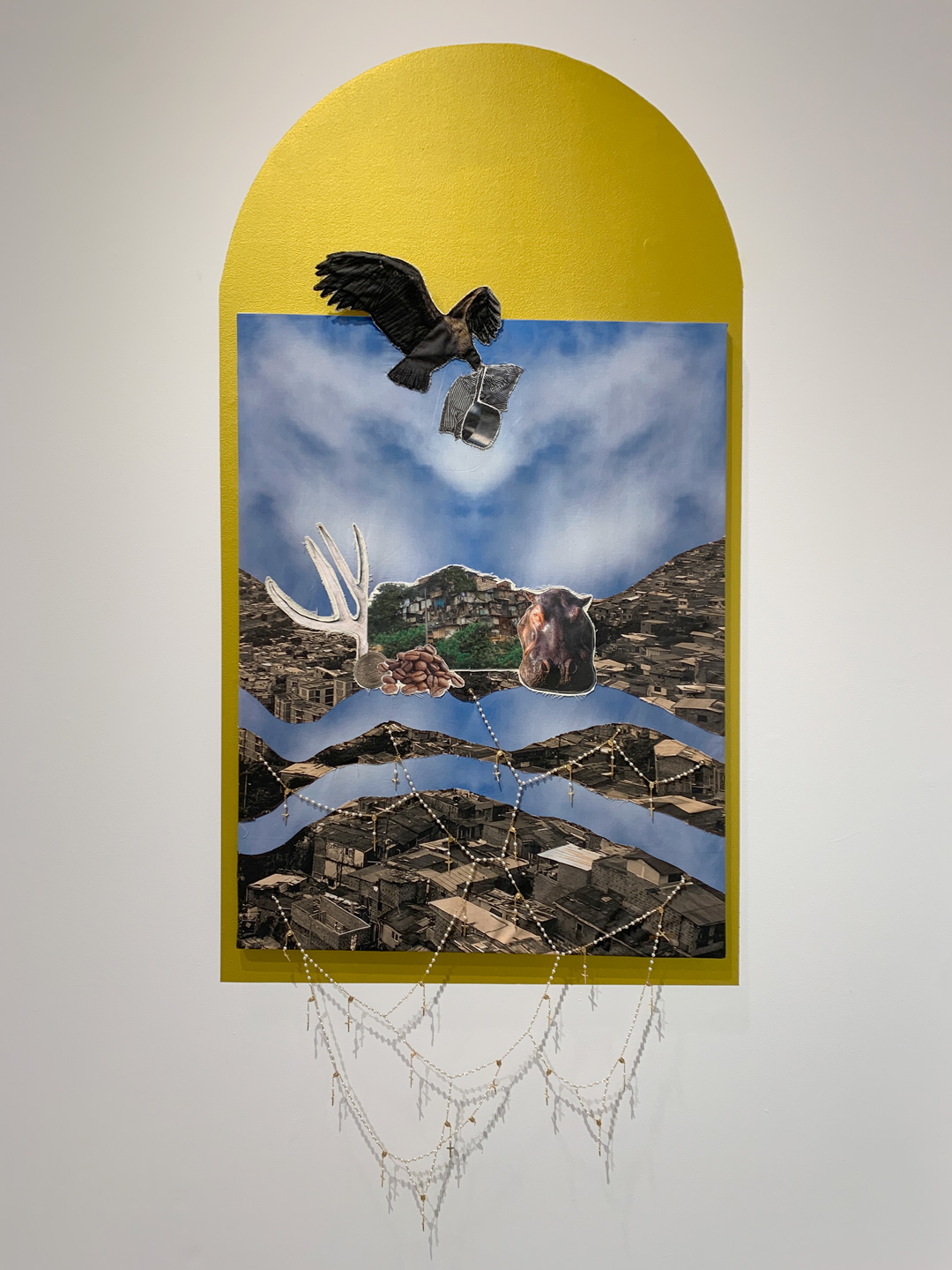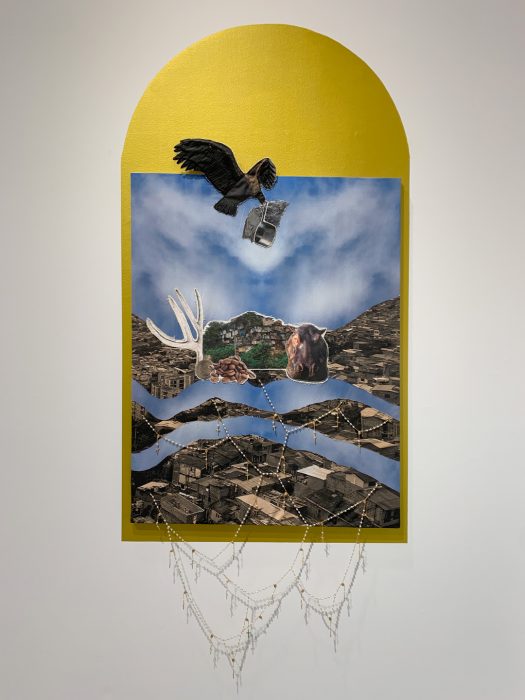February 15, 2023

Script by Gallery & Curatorial Fellow Aria Cooper

Transcript
In this piece, “Condor (Who Will Save Us?)” Paola places us in a Colombian landscape divided by rivers flowing on top of a city draped in a web of rosaries below a bright expansive sky. A peso, a pile of coffee beans, and a hippo sit in the center of the piece as a bird flies above with a pot and a piece of striped fabric in its mouth. The bird is a Condor, Colombia’s national bird, a vulture and the largest flying bird in the world due to its average weight of 25 lbs and a 10 foot wingspan. Paola remembers hearing stories about them; as a kid she was told if you’re bad they will come snatch you up! The striped fabric in the Condor’s beak is called a ruana. It’s similar to a poncho and commonly worn by rural workers. The Condor also holds a pot, which is commonly used in protests. There were a large number of protests in Colombia in 2021 when right-wing President Ivan Duque implemented tax reform that made people pay more taxes on products like bread and eggs. This tax plan hit mid and low income people especially hard. The protests also included calls for healthcare and reduced state violence. The protests became increasingly violent, as the Colombian Police killed 28 people. The UN, Amnesty International, and Inter-American Commission on Human Rights, have all condemned Colombian Police for using excessive and unnecessary force. The peso in the piece alludes to this conflict in Colombia and asks us to question who holds power and what they do with said power. There are other references to these protests like the fabric banner with an image of graffiti on a brick wall that says “murder state” in Spanish. I see a lot of similarities between the Colombian protests and the U.S. ‘s protests against police brutality as well as the rising cost of living and stagnant minimum wage. Paola’s family immigrated to the U.S. from Colombia and she feels that both countries are a part of her. The success story of immigrants in the U.S. always includes that they “came from nothing”. That idea erases and devalues the land that the immigrants came from, the people who have lived and worked the land, and the history of the nation. Sometimes in the U.S. Paola craves Colombian coffee so she goes to the store and gets some but when she’s in Colombia she drinks powdered coffee with her family. Coffee beans are a main export of Colombia but very expensive in Colombia itself. The U.S, Germany, France, Japan, and Italy get to enjoy the coffee but the country that produces it doesn’t have access. This contradicts the idea that immigrants “come from nothing”, the countries that perpetuate this narrative know this isn’t true because they are reaping the benefits from Colombian exports! The hippo is a new addition to the Colombian landscape, not native to Colombia but introduced by Pablo Escabar when he started a zoo in the 90’s. After he was killed in ‘93 all the animals were dispersed back to where they came from except the 4 hippos because they were too heavy and they assumed they would die off. But now the hippo population has grown to about 100! The animals are dangerous, hard to control, and affect the environment. It’s illegal to kill hippos so now there’s a 10 year undertaking to sterilize them with darts. The war on drugs is largely considered a success because the U.S.’s Drug Enforcement Administration killed Pablo Escabar but what other sides of the story are we not seeing? In the midst of these questions of who has control over money, power, and knowledge in society, how do we cope? That’s where the web of rosaries enters. Prayer is one way that people soothe themselves and find solace, especially in Colombia where almost 70% of people are catholic. It’s common for people to say Si Dios quiere “god willing” in times of distress. Although Paola is no longer a practicing Catholic, she still finds comfort and a sense of home in catholicism. Religion also refers to the title of the work “Condor (Who Will Save Us?)”. Will God save us? Or will it be the U.S. that has historically claimed a kind of white savior role? What power do we have as individuals to effect change in our world?